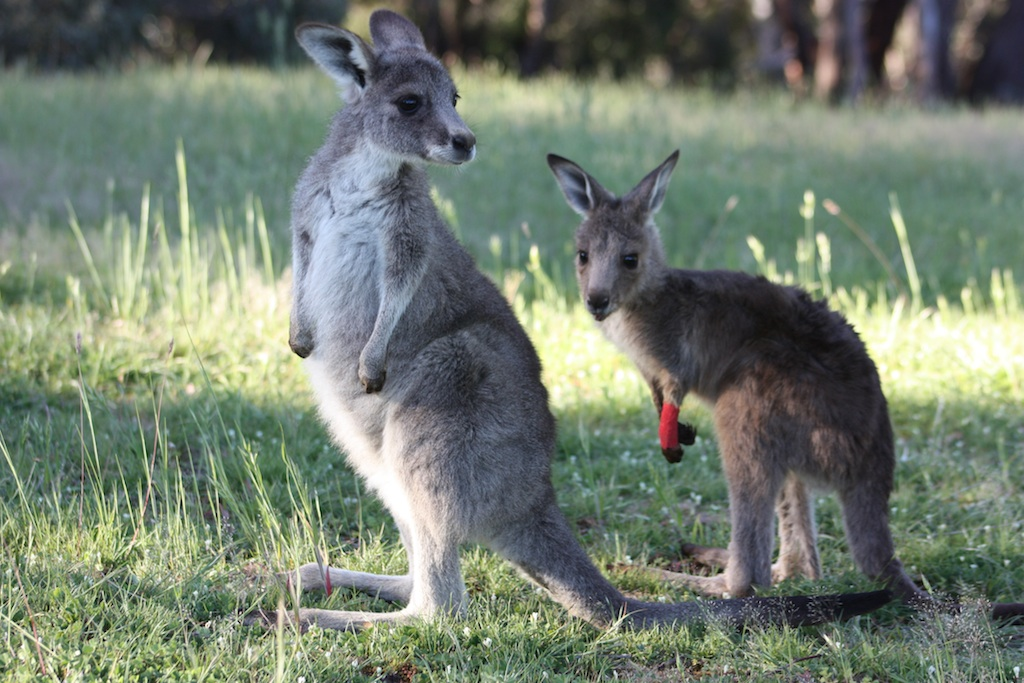Data on NSW licencing reveal the extent of Government-sanctioned destruction of native animals in the state | Conservation groups and wildlife carers to provide evidence of the extent of cruelty at inquiry into licensed killing SYDNEY (5 February, 2026)—Humane World for Animals Australia (previously Humane Society International Australia) will...
Shark finning in a vast swathe of Queensland waters including the Great Barrier Reef has been brought under control today with the state government introducing a landmark fishing reform.
The new rule requires harvested sharks in the East Coast Inshore Fin Fish Fishery (ECIFFF) to be brought back to land in one piece, with their fins attached to their bodies. The announcement was welcomed by the Australian Marine Conservation Society (AMCS) and Humane Society International (HSI).
‘Fins naturally attached’, as the ‘fins on’ rule is formally known, is globally acknowledged as fundamental for management of sustainable fisheries and conservation of threatened shark species. Fishers working in ECIFFF will now be required to bring any harvested shark back to land with its fins on. Previously, sharks could be processed at sea into separate products of fillets and fins which was an enormous problem for monitoring and enforcement.
Dr Leonardo Guida, shark scientist at AMCS said: “It is pleasing the Queensland Government now has the ‘fins on’ rule for this fishery. It closes a loophole and stamps out the illegal and cruel act of shark finning. As recently as 2019, we learned two fishers were convicted of illegally possessing shark fins on their boat in the Great Barrier Reef. Having to bring sharks back with fins on stamps this out for good in our World Heritage listed Reef where fishing should be gold standard.
“Without their fins, sharks are very difficult to identify. If a fisher wanted to, they could cut off and keep the highly prized fins of critically endangered scalloped hammerheads and dump the bodies overboard. So long as the piles of fins and flesh on the boat look like they’re in the right proportions, fisheries officers would be none the wiser,” said Dr Guida.
The Queensland Government’s announcement of the ‘fins on’ reform does not cover all Queensland fisheries. Dr Guida said AMCS and HSI would like to see a more comprehensive roll out of this rule across all Queensland commercial fisheries, including in the Gulf of Carpentaria.
Western Australia (WA) is now the only Australian jurisdiction without this rule in any of its fisheries. Although the Northern Territory has the ‘fins on’ rule in its major shark fishery, it is absent in all other fisheries where sharks are still caught incidentally.
Lawrence Chlebeck, marine biologist at HSI said: “It’s good to see that the Queensland Government has finally closed the shark finning loophole in the ECIFFF with the announcement of the ‘fins on’ rule. To think that finning was still happening to sharks, including some endangered species, in the World-Heritage listed Great Barrier Reef is simply horrible and genuinely stupefying.”
Between 2014 and 2019, Australia legally exported 32 tonnes of shark fin equating to an estimated total of 162,000 sharks.
Dr Guida said: “When fins leave Australia at average price of $73 per kg versus meat at 22c per kg, the temptation to dump a finned shark is there. The ‘fins on’ rule removes that temptation and where it’s in place, we can manage our fisheries more sustainably because we’re much better able to tell what sharks are being harvested and in what numbers.”
He added it was a matter of urgency that independent electronic monitoring of fishing vessels was introduced to help ensure the new rules were followed.
AMCS and HSI, through their national “Shark Champions” campaign are calling for the Western Australian, Northern Territory and Queensland Governments to join all other jurisdictions and adopt the “Fins Naturally Attached” rule across all their fisheries. This would bring them into line with world-best practice, improve the sustainability of their fisheries, and the conservation of threatened shark species.
The ‘fins naturally attached’ rule is part of a suite of fisheries reforms announced on 30 September by Queensland fisheries minister Mark Furner.


